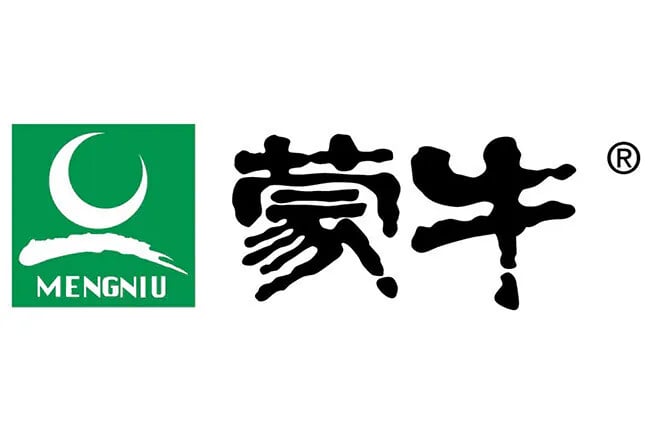Use Desktop for Better Experience
Why Capital is Betting on a Bleeding Mengniu?
China Mengniu Dairy Company Limited (2319.HK)
FINANCIAL
Ryan Cheng
5/18/20253 min read
Mengniu Dairy, once celebrated as a symbol of China’s dairy boom, now finds itself mired in paradox. Its 2024 financials revealed a staggering 98% plunge in net profit, mainly due to investment missteps rather than core operations. Yet, in a twist that puzzled many, Mengniu’s stock price actually rose on the day of the bleak announcement. Investors appear to be looking past the surface chaos—plummeting sales, brutal price wars among distributors, and a saturated liquid milk market—suggesting a deeper belief in the company’s long-term prospects. To understand why capital is betting on a bleeding Mengniu, it’s essential to unpack both the crisis and the calculated pivots underway.
A decade ago, Mengniu’s distributor meetings were legendary, with dealers lining up—sometimes with actual suitcases of cash—to secure their allocations of milk. Today, the scene could not be more different. At its 2024 Lunar New Year order fair, both attendance and orders were slashed in half, largely due to a fractured pricing system that’s eroded trust and profitability. Take Mengniu’s flagship Telunsu Dream Capsule Milk: its price varies wildly across sales channels, from 59 RMB in supermarkets to as low as 30 RMB on Pinduoduo, sometimes even dipping below wholesale costs. This price chaos, driven by desperate small retailers looking to offload inventory, is undermining Mengniu’s traditional control over its product’s value and brand.
The bigger issue lies in Mengniu’s core business. Liquid milk products—pure milk, yogurt, and flavored drinks—make up 82% of the company’s revenue. However, the overall Chinese liquid milk market shrank by nearly 4% in 2024. Even in provinces like Henan, where gifting milk is a cultural norm, demand is fading. Meanwhile, private-label products from competitors like Sam’s Club and Hema are eating into market share. Mengniu’s asset-heavy approach adds to its troubles: as the owner of 10% of China’s dairy cows, it cannot easily scale production up or down. Cows, after all, can’t be “paused” when demand falls. This inflexibility has led to oversupply, price collapses, and distributors dumping stock online at a loss just to clear their shelves.
These operational pressures have produced what’s known as “channel conflict,” though the term barely captures the scale of the dysfunction. Distributors, squeezed between unsold inventory and Mengniu’s rigid quotas, have taken to selling products in unauthorized regions at steep discounts—a practice that’s gone viral on Chinese social media, with videos of dealers surrounded by spoiled milk or stockpiled cartons. Many are bleeding cash simply to stay in the business.
Facing all this, Mengniu is not standing still. Under new CEO Gao Fei, the company has adopted a “One Body, Two Wings” strategy. The core (the “body”) is about streamlining its main businesses: liquid milk, ice cream, and infant formula. One “wing” is innovation, focusing on high-margin functional foods like lactoferrin supplements and protein bars. The other “wing” is globalization, with a special focus on Southeast Asia. In Indonesia, Mengniu has quietly captured 68% of the ice cream market by replicating its rural China playbook—offering free freezers and subsidies to mom-and-pop stores, and selling affordable treats that fit local incomes. Overseas sales now account for more than 5% of Mengniu’s revenue, offering a much-needed growth engine.
Cost control is also bearing fruit. Marketing expenses fell by over 5% in 2024, and gross margins climbed to nearly 40%. If you strip out the investment fiascos, Mengniu’s operational resilience becomes more apparent.
So why is capital cheering Mengniu’s battered performance? From an investor’s perspective, the company is showing signs of margin improvement and strategic adaptation. Its pivot toward premium, functional products and emerging markets aligns with broader global dairy trends. The success in Indonesia suggests Mengniu’s playbook could be replicated elsewhere. Critics rightly point out that the heavy-asset model remains a risk, but Mengniu’s ability to manage such a vast, inflexible operation while pivoting toward new opportunities is being compared to global giants like Danone.
In summary, Mengniu’s predicament reflects larger challenges in China’s consumer economy. Still, its determined attempts to reinvent both its products and its markets demonstrate the agility needed to survive in the current climate. The real question is whether Mengniu can balance its legacy burdens with the demands of innovation. For now, the market is betting that this battered giant can stage a comeback—proof that in capitalism, even wounded companies can inspire confidence if they can tell a compelling story about future growth.


